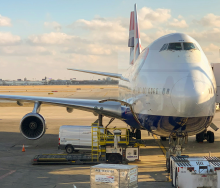Focused revitalisation efforts across Transnet Port Terminals’ (TPT) agricultural sector business division had seen the Durban Agribulk Terminal handle its highest volumes in ten years, the parastatal reported on Monday.
TPT said in a statement that the agricultural sector of its business operations had exceeded annual budgeted volumes by 35%, handling 1 178 389 tons of maize, wheat, soya and woodchips over the 2022/2023 financial year. The volume is also the second-highest recorded in the history of its terminal operations.
It attributed the higher volumes to the refurbishment of the terminal’s ship loader, the acquisition of two ship unloaders in 2021, and enhanced customer communication, which had led to transparency and integrated planning to improve landside and vessel performance. The terminal had also invested in updating customers on the stages of cargo intake and vessel loading across all three shifts until the vessel has completed working.
Annually, the terminal averages 35 vessels. In the 2023/2024 financial year beginning in April, the terminal anticipates handling 1 150 000 tons, with the Free State, Mpumalanga and KwaZulu-Natal the major volume contributors nationally.
TPT added that the East London Terminal had recently resumed the export and import of maize, wheat, rice, soya and other free-flow products after nearly two years of the silo facility’s temporary closure due to a severe decline in volumes regionally. The terminal is now working on a schedule that sees one vessel handled every six weeks, with the ability to load up to 44 000 metric tons with the current sailing draught. A total of nine slots have been forecast and shared with industry for the 2023/2024 financial year beginning in April, and the terminal plans on increasing volumes.
East London grain volumes started declining from 1 000 000 tons in 2011 to 48 000 tons per annum in 2021. The grain elevator, which is also one of the largest silos in the country, with a capacity of 66 000 tons, had become financially constrained, and a decision was taken to temporarily close the facility until business opportunities opened. However, the terminal had continued to discharge grain using a direct discharge operating model, where cargo is loaded in trucks and taken to an external facility immediately.
Agri SA chief executive officer, Christo van der Rheede, welcomed the improved efficiencies.
“Agri SA welcomes the records set by Transnet Port Terminals and congratulates the team for their hard work, professionalism and for patriotism to serve the country with zeal. Keep up the good work. In doing so, the country’s economy grows, food security is strengthened and a better life for all of our people is progressively realised,” Van der Rheede said.
Overall production of wheat in South Africa has declined by 11.4% over the past 20 years, while local consumption has increased by more than 37.9% due to population growth. In order to supply the resultant shortfall in wheat, it has become crucial for South Africa to import wheat.













